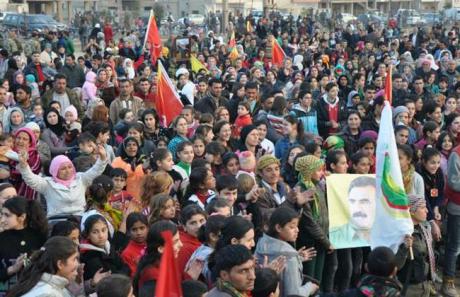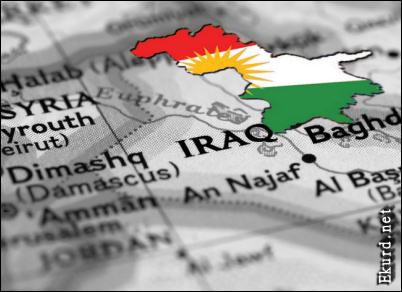Agop Tomasyon, an Armenian from Kobane close to the Turkish border, who fled his hometown for Turkey around nine months ago when the Islamic State of Iraq and the Levant (ISIL) launched an attack, said the last eight Armenian families had left Syria for good and would not return.
“There were only eight families left before the ISIL attack [in October 2014]. All of these families left Kobane after the attack,” said Tomasyon.
Syrian Kurdish forces expelled ISIL fighters from Kobane on June 27 and retook full control after three days under siege, after a group of ISIL militants stormed into the border town. ISIL had also failed to capture Kobane at the start of 2015 after four months of deadly clashes.
Three Armenian families are currently living at the Turkish Prime Ministry Disaster and Emergency Management Authority (AFAD) refugee camp in the Suruç district of Sanliurfa province.
Tomasyan, who belongs to one of the three families in the Suruç refugee camp, said they had to leave their hometown after ISIL’s attack because they knew that the jihadists would kill them once they learned that they were Christians.
“We understood that it was time for us to go. We decided to come to Turkey after a discussion between the last Armenians left. Eventually we came to Suruç,” he said. From Suruç, the eight families had spread to various other places.
“One family settled in Sanliurfa, another in Hatay, and another in Aleppo. Two of the families who had passports went to Armenia. The remaining three families were placed in refugee camps in Suruç,” Tomasyan said.
He added that they had at one point decided to return to Kobane but changed their minds after his brother was killed by jihadists in front of his son’s eyes during ISIL’s latest attack.
“Before the recent ISIL assault, my brother wanted to return to Kobane to see how his house and store was. He took his 14-year-old son with him, but later he was killed by ISIL in front of his son,” Tomasyan said.
“Kobane is not our homeland anymore.”
The 14-year-old Aram Tomasyan, who is Agop Tomasyan’s nephew, said four ISIL members wearing uniforms of the Kurdish People’s Defense Units (YPG) had shot his father on the morning of June 24.
“My father was bleeding from his heart when he fell on the ground. Despite this he still raised his hand and said, ‘Son, run, they are ISIL.’ I ran. If I hadn’t run, I would have been shot too,” the boy said.
The elder Tomasyon said the ancestral roots of Kobane’s Armenians could be traced back to Southern and Central Anatolia, but his ancestors were exiled during the massacre and deportation of Ottoman Armenians in 1915-16. They fled to Kobane and settled there to start a new life.
“We had said that we would never leave Kobane, no matter what,” said Tomasyan, adding that they had two churches in the town and lived in harmony with everyone around them.
During the YPG’s battles against ISIL last year over Kobane, tens of people died in street unrest launched in a number of Turkish cities on Oct. 6 and 7, 2014, amid calls from Turkish Kurds for Ankara to do more to prevent the town from falling to ISIL.
1/7/2015
Original source: http://www.hurriyetdailynews.com/last-armenian-families-from-kobane-fleeing-syria-do-not-intend-to-return-.aspx?PageID=238&NID=84776&NewsCatID=341






![[Kurdish female members of the Popular Protection Units (YPG) stand guard at a check point near the northeastern city of Qamishli, Syria.]](https://neweasternpolitics.files.wordpress.com/2014/03/rojova.jpg?w=490)




















